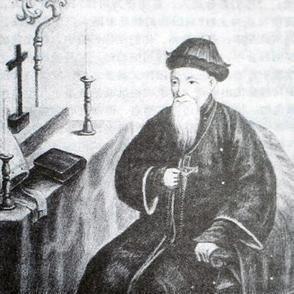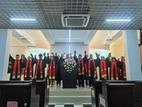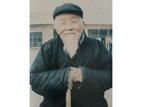In modern times, many Christian churches began the movement of self-governance and self-support. And the most important symbol of church autonomy is to ordain clergy from the local population. In fact, as early as the late Ming and early Qing Dynasties, some Chinese believers became priests in the church, and Luo Wenzao became the first Bishop of the Catholic Church in China.
Luo Wenzao, alias Ruding, title Wocun (Latin name Gregorioiopez), was born in 1617 in Luojixiang Village, Fuan County, Funing Prefecture, Fujian Province. Most of the villagers in Luojixiang village were believers, but Luo Wenzao was one of the few local folk believers. Luo Wenzao lost his parents when he was a child and lived with his brother and sister-in-law. Seeing that he was short of food and clothing, one of the clergy employed him as a helper in the church. Wenzao was talented and diligent.
In 1633, the Franciscan Antonioa Sancta Maria Caballera came to Fuan to preach. In autumn of that year, Luo Wenzao was baptized under his guidance. After that, Luo Wenzao followed Antonioa Sancta Maria Caballera to Nanjing to be a missionary. Due to the "etiquette dispute", the mission was blocked, and he returned to Fujian within a year.
In 1637, he went on a mission with the Franciscans to Beijing, where he was held in high regard by Johann Adam Schall von Bell, from whom he learned a great deal. This laid a solid foundation for his future as a bishop.
In 1644, Luo Wenzao went to Manila with Li Yufan, a Dominican Congregant, to report on China's church affairs to the Dominican Congregant. He also worked part time at the Dominican Institute of Santa Domas. Three years later, Luo returned to Fujian to help with the work of the church there. In the same year, he bought land in Fuan Rattan head to build Rattan Head Church. He joined the order of the Dominicans and became the first Dominican in China.
In the spring of 1652, Luo Wenzao studied at the College of Santo Domus. Two years later, he graduated with honors and was ordained a priest in Manila by Bishop Bob Lloyd. The following year he was sent back to China as a missionary. At that time, the coast of Fuan was full of pirates, who were seizing people everywhere, and demanding ransom. Luo Wenzao had been working for half a year to get the hostages back. Because of his good deeds for the people and his excellent teaching, many were baptized into the Lord.
In 1669, due to Yang Guangxian's call, the Qing Court suppressed Catholicism. Foreign bishops wrote a letter to the Pope in Rome, asking for Luo Wenzao to be promoted as the bishop to manage Chinese religious affairs. But because of the Patronatus missionum of Portugal, this didn’t happen.
In 1674, Pope Clement X appointed Luo Wenzao the Bishop Bathory (with title) and vicar of the Nanjing Diocese. Three years later, he received a letter of appointment. To avoid conflict with the Patronatus missionum of Portugal, he submitted a humble letter to refuse the appointment. The Holy See urged him to obey and instructed him to go to Manila for consecration. After arriving in Manila, the Dominican Order’s Manila provincial President, Charles Garderang, objected to his consecration and ordered him to preach among the local Overseas Chinese and he was not allowed to return. After Luo Webzao received help from Augustinian Order, he was able to sneak back into China.
In 1685, Luo Wenzao was consecrated by Italian Bishop Idayan of the Franciscans in Guangzhou, becoming the first Chinese bishop to administer church affairs of the provinces of northern China. In June of the same year, Luo Wenzao moved to Nanjing. The Nanjing diocese relied mainly on a small grant from the Ministry of Communications and as is often unperpaid by foreign orders. Without the consent of the King of Portugal, the Bishop Luo, who was not subject to the control of the Church of Portugal, recommended to the Pope an Italian, Father Yu, as an associate bishop. The Dominicans had cut off all patronage, and the Bishop Luo was therefore short of funds to inspect the administration.
In 1688, he ordained three Chinese priests, Wan Qiyuan, Wu Yushan and Liu Yunde. In 1690, the Pope announced the establishment of two dioceses in China, Beijing and Nanjing respectively, and Luo Wenzao was appointed bishop of Nanjing. In October of the same year, Luo Wenzao suddenly became seriously ill and passed away in February of the following year.
- Translated by Nicolas Cao












